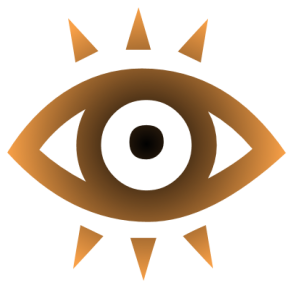



When Śrī Rāmacandra descended, Baladeva came as Lakṣmaṇa. Rāmacandra’s pastimes are so full of separation and self-sacrifice that they make everyone cry. For apparently no reason, he deserted Sītā-devī, not only once, but twice. Lakṣmaṇa had not wanted Rāma to go to the forest, and therefore, while they were exiled, he said to Rāma, “I no longer consider Mahārāja Daśaratha to be our father. Being excessively lusty, he is controlled by a woman; and in his old age his intelligence has diminished. I should kill him! Look – someone is coming! If it is Bharata, I will kill him also!”
Bharata was coming to appease Rāma, but when Lakṣmaṇa climbed up a tree and saw the armies, he became very angry. Taking his bow and arrow, he started towards them. “Where are you going?” Rāma asked. “With whom will you fight?”
Lakṣmaṇa said, “Bharata has come with great pride. He wants to remove you so there will be no obstacle to him becoming the king! Therefore I am going now, and with one arrow I will finish them all!”
But Rāma was thinking that there was a misunderstanding, so he told Lakṣmaṇa a story. Once there was a woman who raised a mongoose for the purpose of protecting her household from snakes. Each day, she put her children to sleep on the bed and, placing the mongoose nearby, went out. One day, while she was out, a snake came desiring to bite the children. The mongoose had a great fight with the snake, and with great difficulty the mongoose killed it and protected the children. Then, being pleased with itself, the mongoose was waiting outside the house for its mistress, and there was still some blood on its mouth from the fight. The woman returned, and the mongoose went before her, saying “ku-ku-ku”. The woman said, “Where has this blood come from? You attacked the children and harmed them?” Hastily, she picked up a stick and killed the mongoose. Then she went inside the house and saw the children playing; the dead snake was laying nearby. Realising her mistake, she lamented.
So Rāma said to Lakṣmaṇa, “Your condition is exactly like this. First wait and see; let Bharata come. Even the Earth herself can be selfish, but Bharata can never be selfish.
Nowhere in this world is there an emblem of love like Bharata. So let him come.”
When Bharata came, he fell at the feet of Rāma and began to appease him. Seeing him offering praṇāma to Rāma, Lakṣmaṇa realised his mistake. When Bharata was leaving, Lakṣmaṇa approached him alone and fell at his feet. As Bharata lifted him up and embraced him, Lakṣmaṇa said, “I am a great offender at your feet. I have not been able to be affectionate to you, to love you,” and he began weeping bitterly.
Another time during the period when they were living in the forest, Rāma ordered Lakṣmaṇa to bring wood when Sītā desired to enter the fire. Lakṣmaṇa became very angry, but Rāma said, “Service rendered in the forest is the highest. You are always a servant.” Lakṣmaṇa accepted the order of Rāma but thought, “I am making a mistake following his order.” So he brought wood, and Sītā-devī entered into the fire. Of course this was a pretext by which the real Sītā came out and the false Sītā disappeared, but still, in the end, Lakṣmaṇa took a vow that, “I will not come again as your younger brother, but only as your older brother. Then things will be different, and you will not be able to treat me like this.”
Therefore in the pastimes of Kṛṣṇa he came as Baladeva, and in the pastimes of Mahāprabhu he came as Nityānanda Prabhu, the older brother both times. So many pastimes could be performed only as an older brother, which from the position of a younger brother would not be possible. If Nityānanda Prabhu were not present, then so many of Mahāprabhu’s pastimes would have remained hidden. He was Mahāprabhu’s servant, His brother and His guru also. How was he Mahāprabhu’s guru? Mahāprabhu’s guru was Īśvara Purī, the guru of Īśvara Purī was Mādhavendra Purī and the guru of Mādhavendra Purī was Lakṣmīpati Tīrtha. Nityānanda Prabhu was also a disciple of Lakṣmīpati Tīrtha, but because his guru departed from this world when he was at a young age, Nityānanda Prabhu received nearly all of his instruction from Mādhavendra Purī. Whoever gives instruction on bhakti is the representative of Bhagavān, and therefore Nityānanda Prabhu always considered Mādhavendra Purī to be his primary guru. When Mādhavendra Purī became his guru, then Īśvara Purī became his godbrother, and since Nityānanda Prabhu was therefore on the level of Mahāprabhu’s guru, Mahāprabhu respected him in that way.
Although we see that Nityānanda Prabhu had three relationships with Mahāprabhu – as a servant, a brother and a guru – still, Nityānanda Prabhu always considered himself a servant. When Mahāprabhu was absorbed in kīrtana, generally it was Nityānanda Prabhu who protected Him. When Mahāprabhu was dancing in His usual way, Nityānanda Prabhu would catch Him for His own protection, and only when Mahāprabhu became absorbed in rādhā-bhāva could Nityānanda Prabhu not touch Him. Nityānanda Prabhu would engage in all types of service, always following the order of Mahāprabhu. Mahāprabhu told him, “Please go to Bengal! The brāhmaṇas there, being very proud, don’t perform bhajana of Bhagavān. Preach something to the brāhmaṇa class, but mostly preach to those who are considered fallen in society, because they are not really fallen.
Each and every soul has the right to perform bhagavad-bhajana. Please go.” So Nityānanda Prabhu went there, preached from village to village, and made disciples of everyone.
Once, Nityānanda Prabhu was going along the road with a preaching party when they came across a village where there lived a wealthy landowner named Rāmacandra Khān. Nityānanda Prabhu entered the man’s home and sat down on the altar of the durgā-maṇḍapa. Previously in Bengal the wealthy people would have such maṇḍapas (canopies raised for ceremonial purposes) for Caṇḍī, or Durgā. He was thinking, “Night is falling, so where can we possibly go now? Tomorrow morning we will continue on our way.”
Meanwhile Rāmacandra Khān sent one of his servants to speak to Nityānanda Prabhu. Sarcastically the man said, “There is not enough space for you here in the house, but we have a gośālā which is a very pure place due to the presence of cows and cow dung. Saints and sādhus should stay there, so go to the gośālā.”
When Nityānanda Prabhu heard this, he became angry and said, “Yes, you are right. This place is unfit for me. It is fit for cow-killing meat-eaters.” Saying this, he left that place. The next day Muslims attacked and arrested Rāmacandra Khān and his entire family. They also killed a cow, cooked the meat and ate it on that very spot. The entire village was destroyed.
Nityānanda Prabhu has two aspects, just like a mother lion. To her cubs the lion is very kind, but to others she is very dangerous. Similarly Nityānanda Prabhu is supremely merciful to the devotees and is the subduer of atheists. Just as Baladeva Prabhu holds a plough and club and killed Dvivida gorilla and others who were inimical to Kṛṣṇa, Nityānanda Prabhu subdues the atheists and increases gaura-prema in devotees.
―Śrīla Bhaktivedānta Nārāyaṇa Mahārāja








